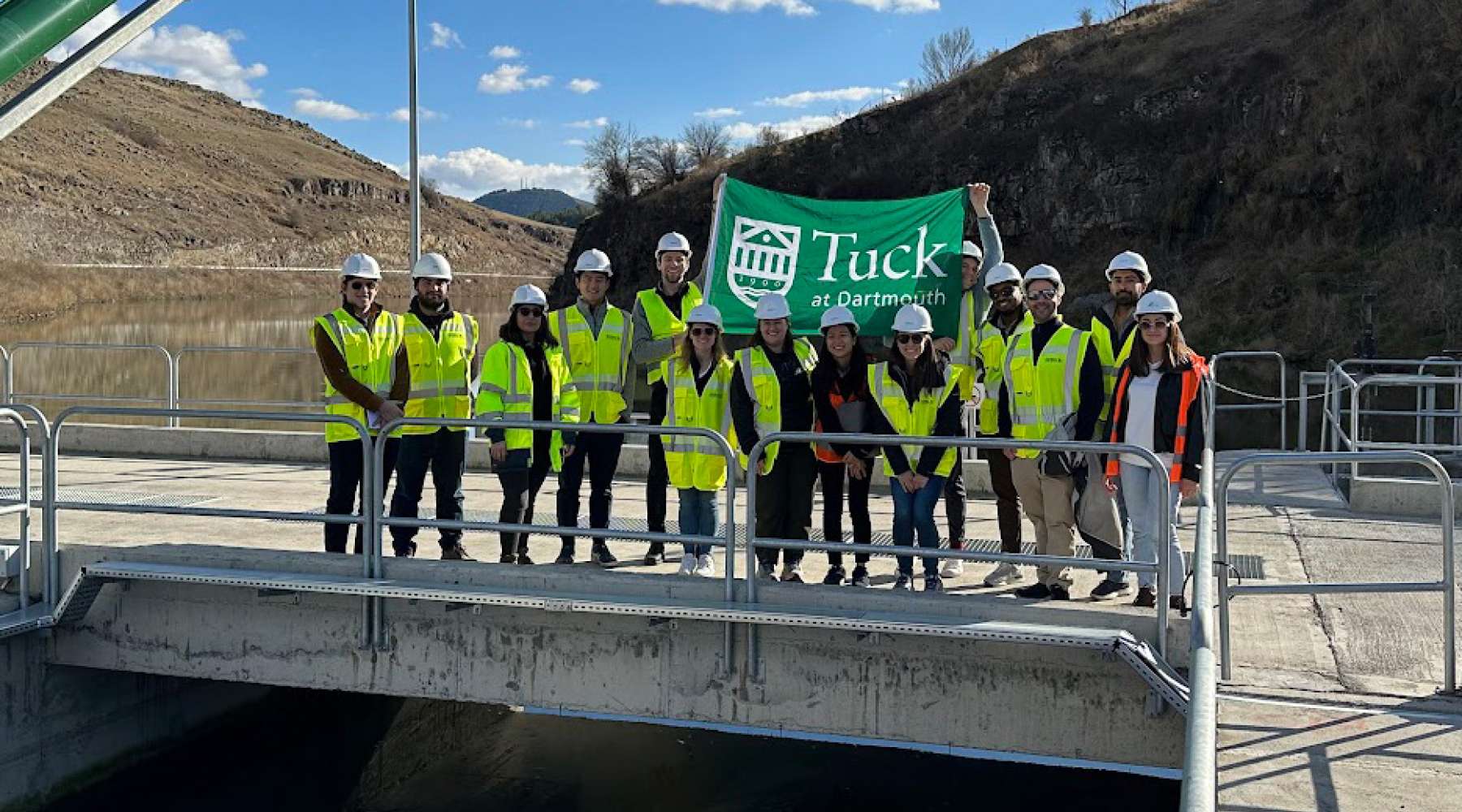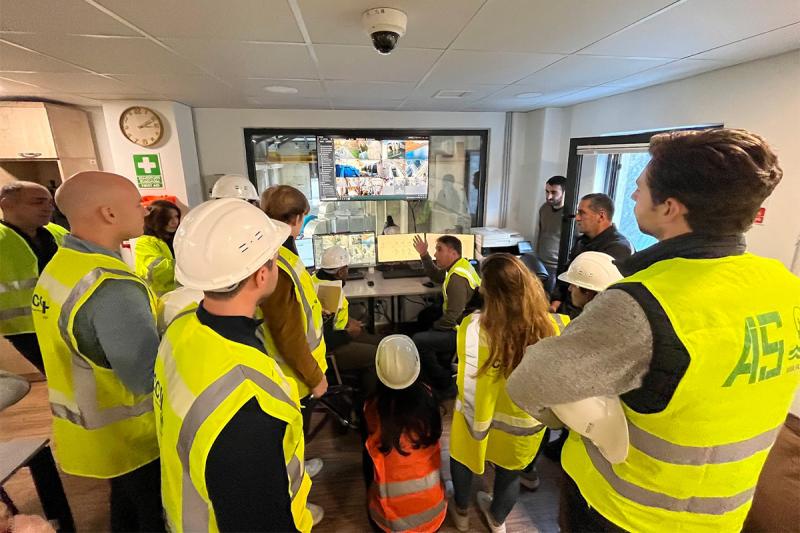
This year the destination for the Revers Center for Energy, Sustainability, and Innovation (RCESI) trek was Georgia, the country (as I had to remind several of my family and friends). The goal was to understand the country’s energy landscape as well as the impact of Russia’s war on Ukraine. Our journey took us from the streets of Tbilisi to Akhalkalaki HPP (hydropower plant) on the Paravani River, and from meetings with electric grid operators to private equity investors and senior government officials.
“I found it particularly enlightening to learn about Georgia’s relatively unusual power discrepancy—plenty of power in the summer when dams are full and rivers are running, but struggles with energy demand during heating in the winter while dam flow is also low. A natural synergy could be found between wind energy, often strong in the winter, and the overall Georgia energy system” —James Randon T’24
We gained insights into the country's energy past, present, and future. More broadly, we delved into the complex decisions facing policymakers and investors in frontier markets, amidst rising political and geopolitical tensions. We saw up close the interplay between energy infrastructure, communities that host projects, the national systems they operate in, and business decisions that drive development. And we had some fun experiencing Georgian culture along the way!
We learned about Georgia's energy past before the trip and during our first day in Tbilisi. As recently as 1998, there was potential for riots over Georgia not having enough electricity. Many Georgians, used to getting subsidized electricity under the Soviet Union, didn’t pay their bills, making electricity generation, transmission, and distribution a losing proposition. A mere 25 years later, we saw GSE’s (Georgian State Electrosystem) control room in Tbilisi, and it rivals that of a regional ISO (independent system operator) in the United States while affordably meeting Georgians’ needs.
“They [the Georgian government] deregulated and liberalized the energy market, creating distinct companies for generation and distribution. The result has been increased private investment, and therefore development, in the energy sector. It’s clear that the role of government—from setting priorities to regulation and policy—drives Georgia’s energy sector development.” —Laura Betten T’24
While in Tbilisi, we met academic, business, and government leaders, including the Deputy Minister who oversees Georgia’s energy systems; a former Deputy Minister of Environment; officials from the US Embassy and USAID; an energy economist; and private equity investors who have invested in renewable energy projects across Georgia. These meetings helped us understand the delicate balance between Russian and European influence, not only in Georgia’s electricity grid but also in the overall economy.
A particular highlight was meeting with Ani Janukashvili, Deputy Director at GEDF (Georgian Energy Development Fund). An inspirational young leader, she shared how GEDF uses government funds to de-risk new renewable energy projects to attract private capital into developing Georgia’s energy system. After spending the summer supporting investments in the US energy transition, it was rewarding to experience firsthand the impact of energy on the Georgian economy.
“There is an inherent tension and risk in Georgia’s expansion of its domestic renewable energy sources with far-reaching geopolitical implications. Diversifying energy imports or expanding renewable energy production would increase self-sufficiency and potentially strengthen EU ties, but also risk angering their neighbor, Russia.” —Kelly Timmes T’24
After learning about Georgia’s electricity history, we were ready to experience the present. Our field stop was at Akhalkalaki HPP. (A huge thank you to Caucasus Clean Energy Holdings for this experience and lunch in Tbilisi the following day!)

Our tour was led by the plant's ESG (Environment, Social, and Governance) manager. Her and the company’s views on ESG were very straightforward—there can be no hydropower plant without it. S (‘Social’) was particularly crucial; she had worked with town leaders to understand their problems with youth development and helped build a sports field for after-school activities. They were also required to limit damage to the river (environmental) and provide training for the site (governance). Back in Tbilisi, we spent the day with the finance team that led and monitored the project portfolio which includes the Akhalkalaki plant, understanding how what we saw on the ground affects financial returns and decisions.
“One of the speakers mentioned air pollution from burning waste in poor neighborhoods and I could see the issue in Akhaltsikhe. The accessibility and affordability of energy, as well as education to use energy efficiently, are important and need to be addressed by different public policies simultaneously.” –Yuka Sugimori T’24
Finally, for a complete Georgian experience, we experienced the forts and monastery at Akhaltsike, a Georgian cooking class, a Georgian feast with local dance performances, and a Georgian winery. Each of these deserves its own blog post, but in short, Georgians are extremely kind, generous, and hospitable people and I encourage you to experience this yourself. Through engaging with investors and operators in Georgia, we understood the practical implications of risks—including geopolitical, execution, social, and regulatory—on long-term energy infrastructure investments. These insights will be invaluable as I pursue a career in finance.